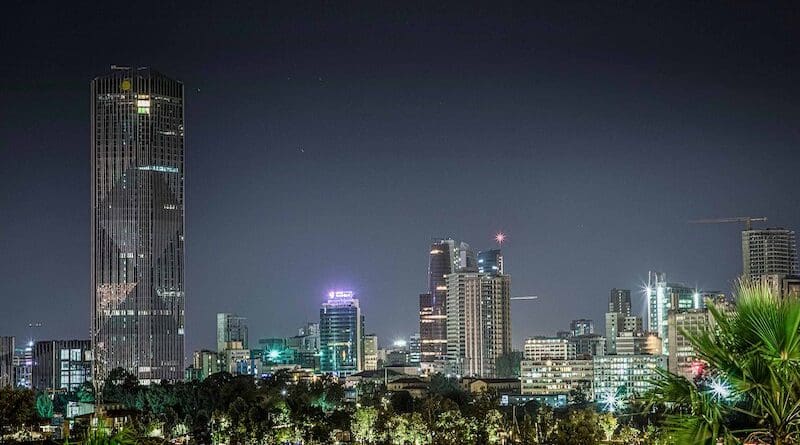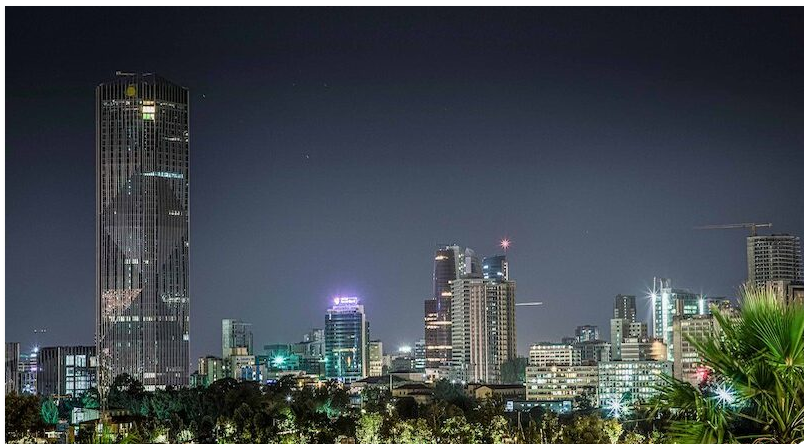
Ethiopia stepped into a destructive path in 2020 when it started a war with itself. Inter-state wars are often reported to negatively affect economic growth as reduction of production and labor shortages, emphasis on the war and not on economic expansion all thrive and the state’s mindset is filled with the issues of the war and internal politics.
Ethiopia’s economy demonstrates quite starkly a clear example of such an economy which not only contracted after growing fast in the years prior to the war, but also affected other aspects of the nation’s wellbeing and in the process the region.
The Ethiopian economy prior to the war enjoyed an emphatic drive to grow involving not only investments in infrastructures but also tight regulatory rules such as managed exchange rate for the country’s currency and capital controls, which all led to declines in hunger in the country and improvement in the social services such as education and health services.
The war in Tigray and now complimented by the war in the Amhara State, the continuing conflicts in the Oromia State and in the Benishangul-Gumuz State, the Afar and the Somali States and the breakdown of the Southern Peoples and Nations into its constituent nations and peoples have not only disrupted the economic growth of the country but the overall wellbeing of the nation, which appears to be going back to its original different nations prior to the colonialism of the nineteenth century.
The country is now facing a serious inflationary peril of between 30% to 40%, current account deficits, and foreign exchange shortages, further complicated by drastic climate changes affecting the whole region and hence a declining economic growth. Indeed, the main culprit in the whole matter is the growing government deficits which spends most of the incomes of the country on the wars which itself has started for no reason other than revenge – the tribal revenge of the Oromo against the Tigrayans and the Amhara. There is also a likelihood that the Oromo may also turn against the Somalis on the East of the country soon.
Disputes in the politics of a country should always be settled around the table in discussions and not through the bullets or tribal/clan revenge activities as seems to be the case with the Oromia nation taking on the traditional rulers of the country, the Amhara and Tigray States – the old Abyssinia. It was a country held together through force and fear anyway and not through choice. Ethiopia should perhaps have learned from its neighbor on the East, Somalia which through political miscalculations drove itself into oblivion and is currently working hard to reconstitute itself.
Perhaps Somalia could succeed in reconstituting itself as the nation is inhabited by one people with one tongue, one religion and one culture whereas Ethiopia consists of a multitude of some 80 nations, some of whom – at least twenty, can form their own nations alone. Ethiopia has, indeed, exposed itself to others such as regional powers who use the country to reach their own nefarious goals in the region.
The serious macroeconomic challenges have finally forced Ethiopia to seek assistance from some of the world’s multilateral financial institutions such as the IMF when it could not meet its external debt obligations. The latter agreed to provide a stepped-up loan of some US$ 3.4 billion over an extended period of three to four years.
The Agreement with the IMF was built, as usual, with conditions which included among others agreeing to float the Ethiopian Birr, modernizing the monetary policy of the country from reserve targeting to interest rate targeting and ending the monetary financing of the government budget through the National Bank of Ethiopia (the Central Bank), and exiting financial repression.
Other conditions included improving domestic government revenues (a difficult process when more than half of the country is at war with the government or between themselves), debt restructuring with external creditors including the Chinese loans and the Paris Club, the African Development Bank Group, and the World bank. The conditions also included enhancing the financial strength of state-owned enterprises meaning they should be privatized to allow private capital seep into the country. The Ethiopian Airlines and Ethio telecom and others could soon be available for grabs.
While this would naturally address the immediate short-term difficulties, in the medium and long term, the expected outcome may turn out to be different. Ethiopia with endless internal strives may not recover from the wrong path it has chosen. Somalia which went through this same course in the eighties of the last century is still trying to recover itself into a viable country and Somalia is much different than Ethiopia in essence. It is just one tribe and not multiple tribes as in Ethiopia.
It is not clear how the current plans will work for Ethiopia. The economy will, no doubt, continue to teeter which may even end up with capital flights as many foreign companies (Arab, Turkish and Indian) who came in the past decades to take advantage of the growing economy of Ethiopia, will now be able to transfer the profits and capital gains they made which were blocked by the previous monetary and fiscal policies of the Ethiopian State.
Wars not only cost human lives but also have economic costs. Wars damage infrastructures, deplete populations and working people, cause inflation and shortages of goods (food, shelter, and clothing) and increase debts as countries borrow more to finance their wars. Wars, indeed, disrupt normal lives. This is clearly what is happening in Ethiopia today.
After growing on average at 10 % for the 15 years before the Tigray war, Ethiopia’s economy grew at 4.5% as per independent estimates in 2023, although the government claimed that the economy grew at 7.2%. The truth would lie somewhere in between but generally lower than in the years before the war.
This is expected not to improve as the Amhara war is now in full display and would affect the economy as well. Other brewing wars could also have their negative impact on the country’s economy with government’s local revenues declining instead of growing as per the agreement with the IMF.
Ethiopia is reported to be facing a debt overhang of some US$ 1 billion debt repayment on the Eurobond unless it restructures. It became one of the defaulters in Africa in 2023 when it failed to make a US$ 33 million coupon payment on its Eurobond.
It has actually applied for a debt restructuring but it is not clear as yet on how this restructuring is going to work. Fitch rating agency downgraded Ethiopia’s credit rating to C and the Eurobond to restricted default” in December 2023. On January 1st, 2024, the Ethiopian Government went on a wrong track again signing an illegal MoU with one of the regions of Somalia, further complicating the economic calamities of the country.


